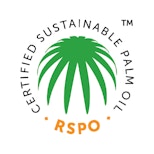It has been just over six months since the palm oil industry’s biggest certifier, the Roundtable on Sustainable Palm Oil (RSPO), introduced tougher standards that prohibit growers from clearing any forest or planting on carbon-rich peatlands following a period of sustained pressure from companies, consumers and green groups.
RSPO’s new Principles and Criteria (P&C) were welcomed, even by the organisation’s fiercest critics. But there is some way to go to ensure RSPO’s standards protect forests, the people who grow the crop, and the consumer goods companies whose reputations depend on buying sustainable oil palm.
Despite a stricter stance on deforestation, last month Selfridges became the second retailer in the United Kingdom to ban palm oil from its products in protest over the commodity’s continued links to forest clearance in the tropics.

Left to right: Perpetua George, Liz Clarke, Robin Hicks and Darrel Webber in Eco-Business’ recording studio in Singapore.
On this podcast, Eco-Business is joined by three industry experts to discuss what RSPO’s new rules mean for the palm oil trade, forests and the people who depend on them: Darrel Webber, RSPO’s chief executive, Elizabeth Clarke, global lead for palm oil for environmental group World Wide Fund for Nature (WWF), and Perpetua George, general manager, group sustainability, Wilmar International, the world’s largest palm oil trader.
Tune in as we talk about:
- The impact of the new standards
- The challenges of making them work
- How can the rules be effectively enforced?
- What next for RSPO’s standards?
- Brand palm oil and fighting fake news















